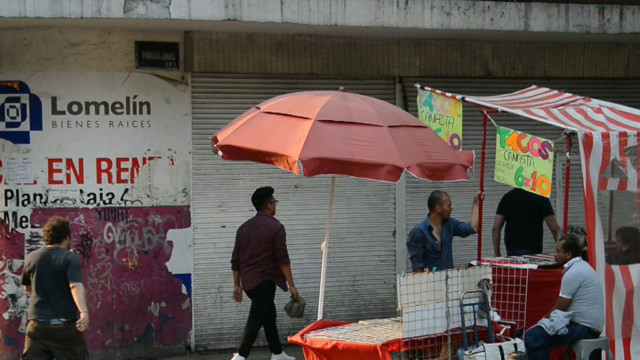In Mexico, a large number of deportees from the United States are beginning to have an effect on the capital. And with the fate of some 800,000 undocumented migrants brought to America as children currently up in the air, the number of deportees may rise sharply. CGTN’s Alasdair Baverstock reports on the rise of “Little L.A.” – a neighborhood in Mexico City – with roots in America.
In the heart of Mexico City lies a haven of American culture.
Run by Edwin Aguilar, a U.S. deportee, Flow Barbershop caters to customers that share his cultural background.
“The experience of a barbershop is what takes you back to the neighborhood where you grew up a little bit,” Aguilar explained. “When you have a long weekend, go inside, get your hair fixed, listen to some music, and talk to all the people who speak your same language. And you go from there, when you go back you don’t really realize you’re in Mexico.”
Edwin’s business is in the heart of a downtown neighborhood that has been nicknamed “Little L.A.”, due to the large numbers of U.S. deportees who have taken up residence here.
Complete with Tex-Mex food stands, tattoo parlors and English commonly spoken in the streets, Little L.A.’s population has attracted many of the estimated 18,000 deportees who arrived in the capital in the last year alone.
Two of the major reasons that Little L.A. has sprung up in a Mexico City neighborhood around the Revolution monument are that the rent is cheap and a lot of call centers are based in the area. Many deportees speak better English than Spanish, and find work here when they first arrive.
According to Chris Ramirez, a deportee, “A lot of people that get deported from the U.S., they work in call centers, because their English is really good I guess.”
Yet the average time a deportee spends working in a call center is just eight months, and many aspire to greater goals in the Mexican capital.
Israel Concha is a community leader in Little L.A., and works with newly arrived deportees to help them find their feet in this megacity.
“I can tell you this area is well-known by thousands of people,” he said. “Let’s say you just came back. I’ve been here for a couple of months or years, I can help you reintegrate to society. If we really want a change, we have to create it, and what better than our own bi-national community?”
But the challenges are great for many deportees, rejected not just by the United States, but by fellow Mexicans who view them as ‘outsiders’.
“The difference between a deportee and a local Mexican is very clear to see. They have different ideas about how to behave, which we see as disrespectful, and it’s very difficult for us to mix,” said Menchon Mercado, a local.
As Mexico City’s Little LA continues to attract deportees, understanding between the local and alien communities remains undeveloped.
But now that it seems the returning migrants are here to stay, there is hope the melting pot of Little LA will result in a microcosm of true Mexican-American culture.
 CGTN America
CGTN America

